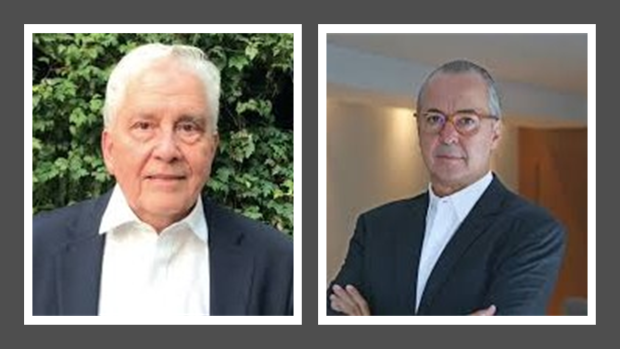"Tariff War: Brazil and the United States"
Publicado em 24/07/2025
 Mr. Paulo Rabello de Castro and Mr.Luiz Pretti
Mr. Paulo Rabello de Castro and Mr.Luiz Pretti
Published on July 14th, 2025
Agriconscient Show
Broadcast by Radio Eldorado Estadão Brasil
*José Luiz Tejon
Translated/Copy Desk by Teacher Francisco Barbosa Bardhal
A senseless tariff hike is politically motivated, so we need calm and reason. These are the Insights from Mr.Paulo Rabello de Castro and Mr. Luiz Pretti. Brazilian trade negotiators will need to ease tensions and address distrust in relations with the United States. A 50% tariff is bad for both the U.S. and Brazil.
So, let’s hear from economist Paulo Rabello de Castro, former president of IBGE and BNDES, with a Master’s and PhD from the University of Chicago: "Let’s discuss Trump’s tariff hike and its inevitable negative effects on Brazilian Agribusiness. Such an excessively high tariff makes no sense.
This leads to the first of two key questions:
Is Trump’s motivation commercial or political? It’s political. Trump is reacting to the BRICS meeting in Rio de Janeiro, which directly challenged the U.S. dollar’s role in international transactions. While a gradual decline in U.S. global influence may happen eventually, that’s still far.
President Lula, with his union leader style, should never have behaved like a provocateur, the “class bully” picking on the powerful “blond kid” on the corner. Now, Brazil faces retaliation.
Negotiators will have to work hard to soften this diplomatic offence.
As for Bolsonaro, apologies to his supporters, he´s performing Pontius Pilate in this creepy story. By pretending to have provoked this situation, he’s now embarrassed (or should be) over the damage this U.S. sanction will cause to Brazil.
The second question is about the actual losses.
In sectors where the U.S. has alternative suppliers, particularly for meat more than for coffee or orange juice, the repercussions will be more severe, compelling Brazilian Agribusiness to bear much of the 50% tariff.
Essentially, Brazilian farmers will have to absorb a considerable share of this tax on products like meat, where alternative sources are readily available.
For products with fewer alternatives, Americans will likely face higher prices, while Brazil suffers from reduced U.S. demand.
These are the key points for reflection. My best regards."
Thus, I believe this politically motivated trouble, stirred up by Trump, must be handled rationally.
I also spoke with Mr. Luiz Pretti, a prominent business leader who served as president of Cargill, the largest American multinational in Agribusiness, as well as former head of Amcham Brazil. Currently, he sits on the board of the U.S.-Brazil Chamber of Commerce, the largest American trade chamber in the world. He was unequivocal:
"We need calm and patriotism. All branches of government must think of Brazil as a nation. We’re losing ground over entirely unnecessary disputes, so we need a true sense of national purpose."
May sanity prevail over these negotiations, even amid high levels of irrationality. Perhaps this friction with Trump will wake Brazil up to the need for a strategic plan, diversifying markets and adding more value to exports.
After all, Agribusiness is Agribusiness. Political ideologies must be aside!
*Prof.Dr.José Luiz Tejon - PhD in Education Universidad de La Empresa/Uruguay; Academic Director Brazil+Tropical Belt Nations at International Agribusiness MBA Audencia France & Fecap Brazil; Master's degree in Art Education and History of Culture - Mackenzie University; Journalist and Publicist - Harvard, MIT and PACE/USA/ Insead in France; Specialization Academic Coordinator of Master's Science Food & Agribusiness Management at Audencia in Nantes/ France, and FECAP/Brazil; Managing Partner at Biomarketing and TCA International; Professional Head at Agri Anefac; Writer, author and co-author of 37 books; Agri Personality Award 2023/ABAG -100 Most Influential People in Agribusiness; Former director of Grupo Estadão, Agriceres and Jacto S/A; 2025 Award Agriworld Group.
